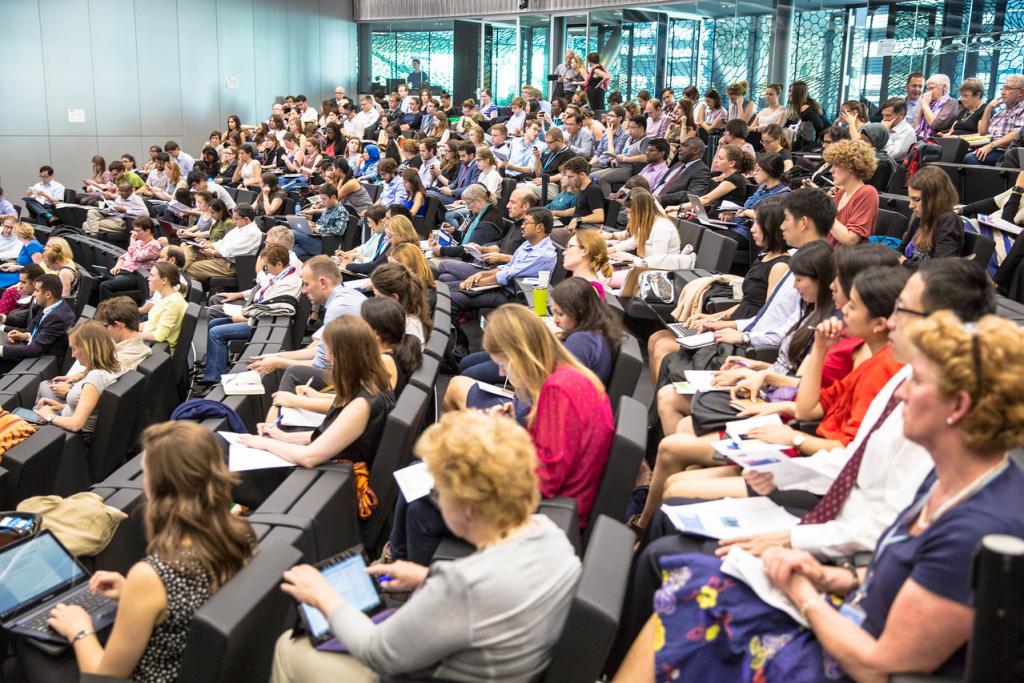The Maison de la paix increasingly plays the role of a convening hub for the multitude of actors in International Geneva and beyond. Within the context of the 68th World Health Assembly (WHA), the Global Health Programme (GHP) at the Graduate Institute brought together a wide range of actors to exchange ideas, knowledge and experiences on key governance challenges related to the complexity of the current global health landscape and multi-sectoral cooperation.
As the WHA attracts an increasing number of country delegates, representatives of non-governmental organisations (NGOs), the press and the private sector, the GHP hosted a series of trainings and workshops targeting different stakeholders: a group of journalists of the World Health Editors Network could establish closer links to the global health community and learn more on the WHA to improve its media coverage, while the participation of the young generation to global governance processes was promoted through a five-day workshop for medical students and young people of the International Federation of Medical Students’ Associations. At the same time, representatives of NGOs convened at the Maison de la paix to align strategies and further the discussion on the establishment of a “Geneva global health hub” for civil society. These actors then joined new delegates and participants for an introductory briefing to the WHA organised by the GHP and the United Nations Foundation in collaboration with the World Health Organization (WHO). The event attracted nearly 400 participants. This success testified to the demand for better knowledge of the WHA’s processes, structures and key issues to build understanding of WHO’s role in global health and how the WHA contributes to engaging a wide range of actors.
Among the many actors shaping the global health landscape, the Bill and Melinda Gates Foundation has become one of the biggest grant providers in global health and development, with implications for global health governance and priority-setting processes at the global and national levels. The GHP has, therefore, invited Chris Elias, President of the Global Development Program, for a dialogue session aiming at better understanding the foundation’s functioning and strategic orientation. This move towards greater opening and dialogue are part of a more intentional learning process contributing to the foundation’s positioning and interaction with agencies and institutions active in health at the global, regional and local levels. However, it became clear that in addressing global health governance challenges, member states retain major responsibilities.
Finally, as Ebola was at the centre of this year's discussions, the GHP and the Geneva Centre for the Democratic Control of Armed Forces brought together the health and security sectors, in order to complement discussions at the WHA and build synergies for better global health security. As the keynote address by Laurie Garrett stressed, a long history of missed opportunities characterises past infectious disease outbreaks. It is high time that a systematic, multi-sectoral discussion to identify constructive ways to effectively prevent and respond to global health crises takes place.
The great expertise and innovation potential of the unique concentration of actors constituting International Geneva meets in the Maison de la paix and the GHP provides an ideal platform for innovative thinking and the exchange of experiences to trigger policy actions at the national and global levels.


